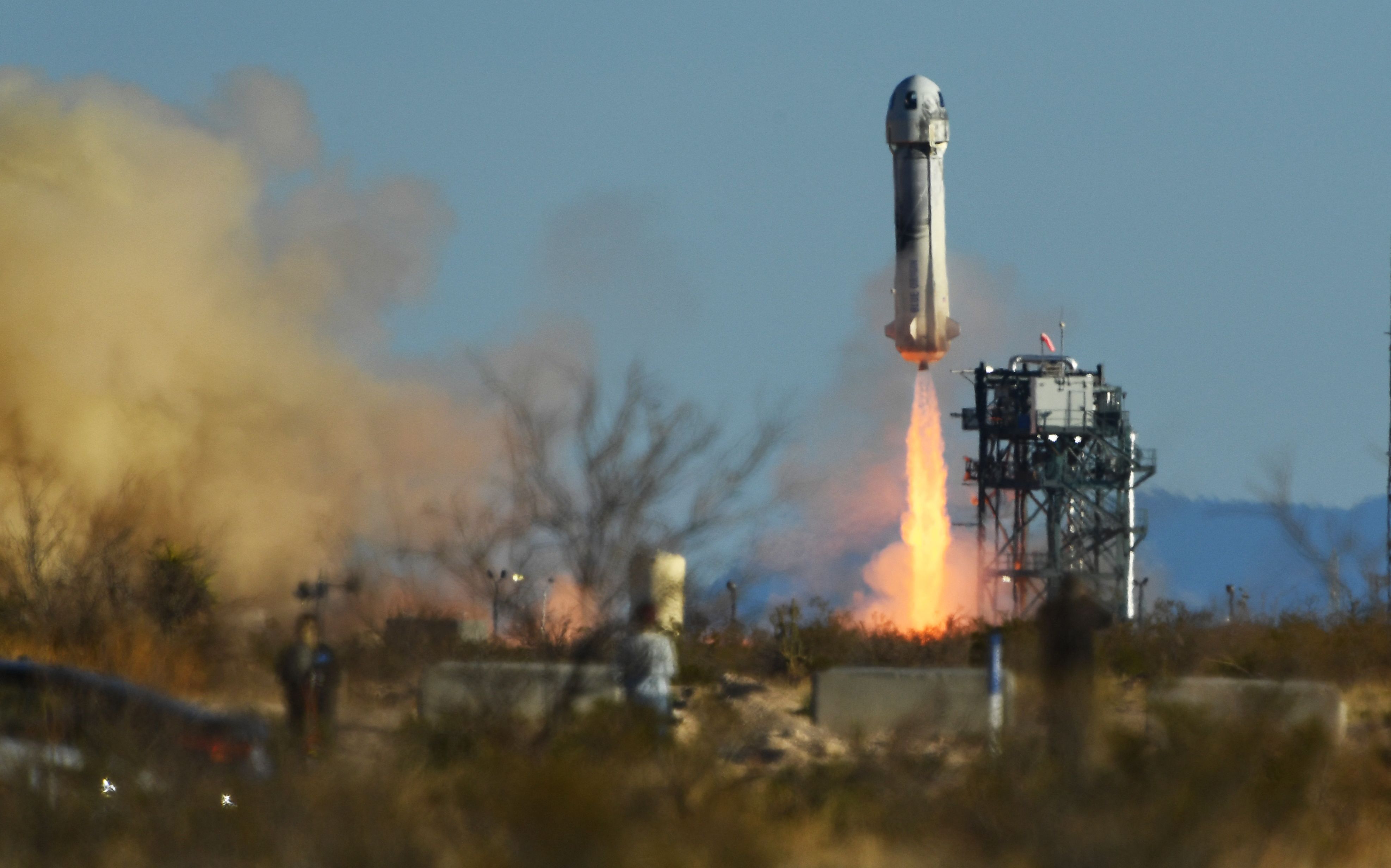BILLIONAIRES ARE RACING TO SPACE—AND THE CLIMATE IS PAYING THE PRICE

Time - JUNE 28, 2022
There’s a spectator sport quality to the billionaire space race. Pick your favorite rich guy and your favorite rocket—Elon Musk’s Falcon 9, Richard Branson’s VSS Unity, Jeff Bezos’s New Shepard—and start your own cheering section. And while it’s not always easy to root for the fabulously rich to get even more fabulous, there’s something in the space race for all of us. Space tourism, after all, is becoming a growth industry, and as the frequency of flights goes up and the cost comes down, we can all dream of earning our astronaut wings.
But according to a new study published this month in the journal Earth’s Future, all the new joyriding could come at a steep environmental price. The more rockets that get launched, the more black soot gets injected into the upper atmosphere, not to mention pollutants including nitrogen oxides, aluminum oxide, hydrochloric acid, and chlorine, as well as water vapor. Together, all of that output not only contributes to global warming but also to the depletion of the ozone layer.
There’s been limited information on the emissions impact of space travel, the study notes. And the sector is largely absent from international climate treaties. The new paper, therefore, “allows us to enter the new era of space tourism with our eyes wide open to the potential impacts,” said co-author Robert Ryan, a research fellow at the University College London’s geography department, in a statement. “The conversation about regulating the environmental impact of the space industry needs to start now so we can minimize harm to the stratospheric ozone layer and climate.”
To conduct their work, the researchers chose 2019—before the three companies began carrying crews to space—as a baseline. In that year, there were 103 space launches worldwide—most by government-run space exploration programs—all of which contributed their own pollutants to the atmosphere. Compared to that, space tourism by Blue Origin, Virgin Galactic, and SpaceX is just a blip. Since 2020, Virgin has carried only a single crew of space tourists, SpaceX has carried two, and Blue Origin has carried five, just since last July. But that slow start belies big plans.





